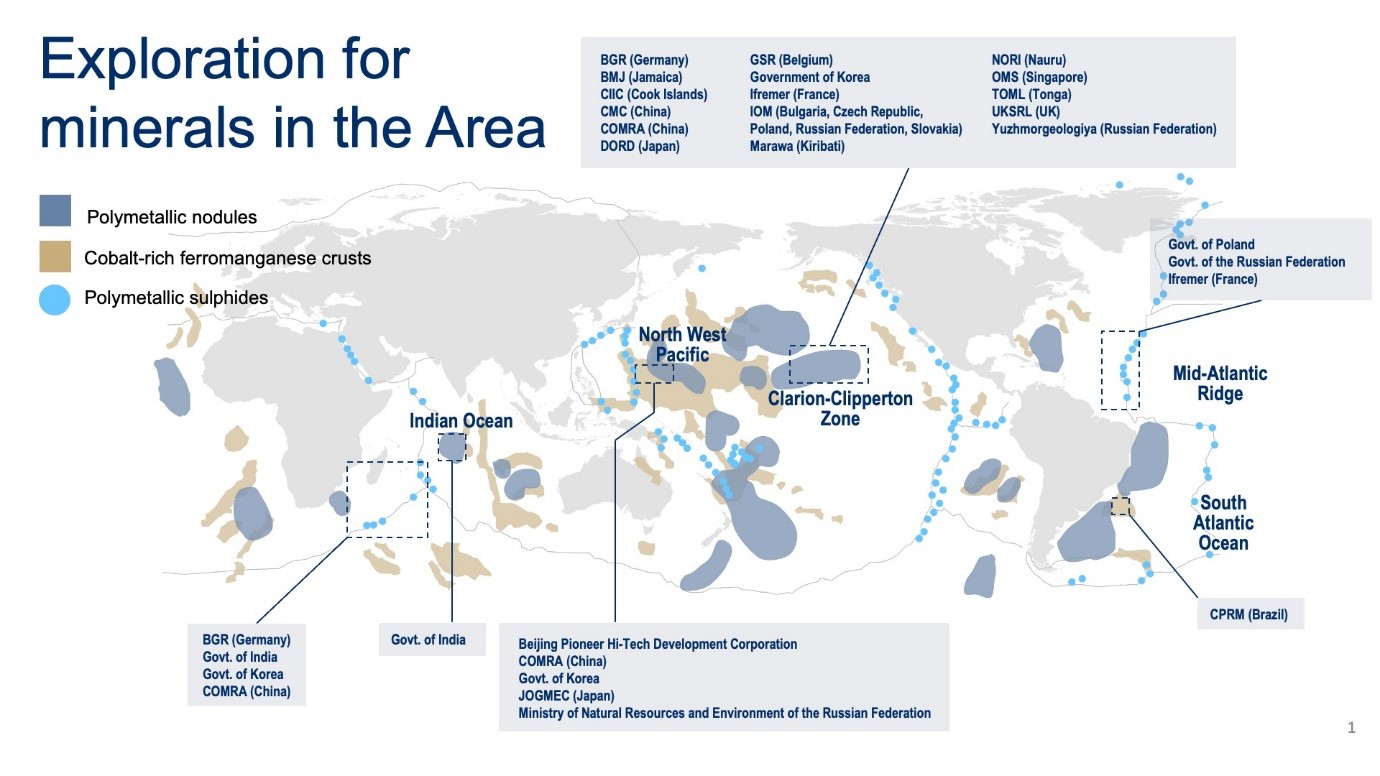Ahmedabad
(Head Office)Address : 506, 3rd EYE THREE (III), Opp. Induben Khakhrawala, Girish Cold Drink Cross Road, CG Road, Navrangpura, Ahmedabad, 380009.
Mobile : 8469231587 / 9586028957
Telephone : 079-40098991
E-mail: dics.upsc@gmail.com

UN to allow deep sea mining
News: The International Seabed Authority (ISA) has decided that it will start taking permit applications from companies that want to mine the ocean floor.
About ISA:
The International Seabed Authority (ISA) is an autonomous international organization established under the 1982 United Nations Convention on the Law of the Sea (UNCLOS) and the 1994 Agreement relating to the Implementation of Part XI of the United Nations Convention on the Law of the Sea (1994 Agreement).
In accordance with UNCLOS, Article 156(2), all States Parties to UNCLOS are ipso facto members of ISA. As of 1 May 2020, ISA has 168 Members, including 167 Member States and the European Union.
HQ – Kingston, Jamaica
What is Deep sea mining?
It involves retrieving mineral deposits from nodules that dot the ocean floor, typically more than 600 feet below sea level.
The most economically viable nodules lie partially under sediment in the north-central Pacific Ocean, the southeastern Pacific Ocean, and the northern Indian Ocean.
Under the UNCLOS, ocean areas beyond national jurisdiction and their mineral resources are the common heritage of humankind. It contains most of the same minerals (but in enriched forms) that are found on land, as well as minerals that are unique to the deep ocean, such as ferromanganese crusts and polymetallic nodules.
Need for Deep sea mining:
To extract key battery materials – cobalt, copper, nickel, and manganese – from potato-sized rocks called “polymetallic nodules” found at depths of 4 – 6 km.
Within the next 2 decades, the IEA predicts that renewable energy technology will make up over 40% of the demand for copper, 60 -70% for cobalt and nickel, and 90% for lithium.
Thus, Deep sea mining could help meet the rising demand for energy transition metals.
What are the concerns raised?
At the 28th Session of the ISA (Kingston, Jamaica), several countries insisted that industrial undersea mining requires strict rules.
Absence of mining code - The 36-member council is uncertain about the process it should adopt for reviewing applications for mining contracts.
Increasing Geopolitical tensions - China has demonstrated its desire to shape international norms in the maritime domain, as exemplified by Beijing’s aggressive actions in the South China Sea. The nation has hold over 5 out of 30 Deep sea mining exploration contracts.
It would go beyond harming the seabed and have a wider impact on the deep-sea marine ecosystems in regulating the climate.
Chile, France, Palau, and Fiji, among other nations, have called for a global moratorium on the practice, citing environmental concerns and a lack of sufficient scientific data.
In Resolution 122, IUCN notes that if deep-sea mining is permitted to occur, biodiversity loss in these unique ecosystems will be inevitable, and the consequences for ocean ecosystem function, and for humanity, could be vast.

Address : 506, 3rd EYE THREE (III), Opp. Induben Khakhrawala, Girish Cold Drink Cross Road, CG Road, Navrangpura, Ahmedabad, 380009.
Mobile : 8469231587 / 9586028957
Telephone : 079-40098991
E-mail: dics.upsc@gmail.com
Address: A-306, The Landmark, Urjanagar-1, Opp. Spicy Street, Kudasan – Por Road, Kudasan, Gandhinagar – 382421
Mobile : 9723832444 / 9723932444
E-mail: dics.gnagar@gmail.com
Address: 2nd Floor, 9 Shivali Society, L&T Circle, opp. Ratri Bazar, Karelibaugh, Vadodara, 390018
Mobile : 9725692037 / 9725692054
E-mail: dics.vadodara@gmail.com
Address: 403, Raj Victoria, Opp. Pal Walkway, Near Galaxy Circle, Pal, Surat-394510
Mobile : 8401031583 / 8401031587
E-mail: dics.surat@gmail.com
Address: 303,305 K 158 Complex Above Magson, Sindhubhavan Road Ahmedabad-380059
Mobile : 9974751177 / 8469231587
E-mail: dicssbr@gmail.com
Address: 57/17, 2nd Floor, Old Rajinder Nagar Market, Bada Bazaar Marg, Delhi-60
Mobile : 9104830862 / 9104830865
E-mail: dics.newdelhi@gmail.com